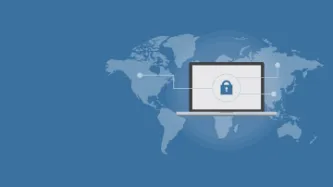Search
Content type: Examples
The Israeli digital ID card creator Pangea EVP has developed an immunity passport intended to give individuals access to public spaces, including airports. The passport will include a photo of the holder, a digital signature, a hologram, and a chip. When they want to fly, holders will insert flight and medical details into a web portal; the system will then advise the health protocol they need to follow. If they test negative for COVID-19, the laboratory will issue a smart card that…
Content type: Examples
Our partners from Right to Know campaign in South Africa produced this infosheet to simplify what the South African government has committed to doing in ensuring that the use of surveillance does not impact negatively on people’s rights to privacy and that necessary data protections are taken into cognizance, whilst the necessary safeguards are put in place to protect citizens during this period of COVID 19.
Link: https://www.r2k.org.za/2020/04/14/covid-19-surveillance-infosheet/
Content type: Examples
Researchers at the University of Cape Town are developing the smartphone app COVI-ID to help the South African government track people who may not know they have contracted COVID-19, as well as people who have come into contact with those who have tested positive. The app will use Bluetooth and geolocation (via GPS, cellphone tower signals, and wifi) to collect the personal locations of users along with their infection status and store the information on the device using self-sovereign identity…
Content type: Examples
The regulations brought in to curb the spread of COVID-19 in South Africa included directions published by the minister of communications and digital technologies that critics claimed violated the country's constitution. On the plus side, the regulations ordered service providers to ensure continued provision of internet and telecommunications services, and enabled temporary licensing of spectrum bands, which could increase internet capacity. However, the regulations also make publishing a…
Content type: Examples
The government has issued a substantial rewrite of a controversial proposal to track people using their phones and other devices in the bid to contain Covid-19. AmaBhungane, an investigative journalism newsroom, said the first “directions” – issued last week by the minister of communications – raised "serious concerns for their vagueness and lack of privacy protections”. The new regulations provide more judicial oversight, restrict the purpose to contact tracing, and aim to ensure that…
Content type: Examples
The South African National Institute for Communicable Diseases and the Council for Scientific and Industrial Research will partner with Telkom and Samsung to create a track and trace system specifically for the South African context, which includes high levels of economic inequality, poverty, and overcrowding. The system will collate data sources such as GIS in order to track those who may be infected and those whom they may expose to the virus. In some communities, the Department of Health…
Content type: Examples
South Africa's Communications Minister, Stella Ndabeni-Abrahams, has stated that telecommunications operators in the country have agreed to provide location data to identify how many people have been infected in a particular area. The Government has broad powers under a national state of disaster.
Writer: Philip de Wet
Publication: Business Insider
Content type: News & Analysis
Our intervention comes on the back of mounting evidence that the South African state’s surveillance powers have been abused, and so-called “checks & balances” in RICA have failed to protect citizens’ constitutional right to privacy.
Among our core arguments are:
That people have a right to be notified when their communications have been intercepted so that they can take action when they believe their privacy has been unlawfully breached. Currently RICA prevents such notification, unlike…
Content type: News & Analysis
As the international cyber security debate searches for new direction, little attention is paid to what is going on in Africa. Stepping over the remains of the UN Group of Governmental Experts, and passing by the boardrooms of Microsoft struggling to deliver their Digital Geneva Convention, African nations are following their own individual paths.
Unfortunately, these paths increasingly prioritise intrusive state surveillance and criminalisation of legitimate expression online as…
Content type: Long Read
To celebrate Data Privacy Week, we spent the week discussing privacy and issues related to control, data protection, surveillance, and identity. Join the conversation on Twitter using #dataprivacyweek.
Do you live in a “smart city”? Chances are, you probably do (or at least your city claims to be). But do you know what exactly makes your city “smart”, beyond the marketing term? And what does this have to do with privacy?
Companies and governments will tell you that the more cameras, sensors…
Content type: Long Read
Privacy International is celebrating Data Privacy Week, where we’ll be talking about privacy and issues related to control, data protection, surveillance and identity. Join the conversation on Twitter using #dataprivacyweek.
Exercising the right to privacy extends to the ability of accessing and controlling our data and information, the way it is being handled, by whom, and for what purpose. This right is particularly important when it comes to control of how States perform these activities.…



